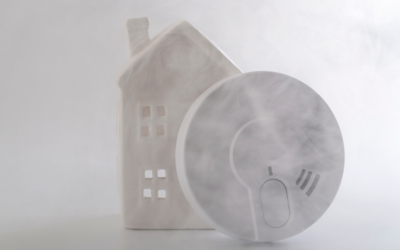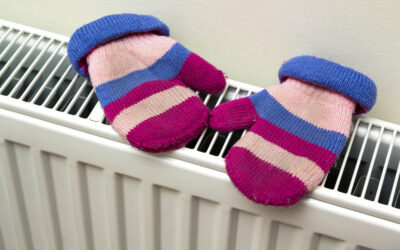As the calendar edges closer to summer, the importance of air conditioning maintenance becomes increasingly apparent. The discomfort and inconvenience of an AC breakdown during peak heat are not only frustrating but can also be dangerous in extreme temperatures. Regular air conditioning system maintenance is crucial to avoid such pitfalls, ensuring you can enjoy the summer months in comfort and safety.
Why Pre-Summer AC Maintenance Is Crucial
Efficiency: Regular maintenance is key to ensuring that your air conditioning system operates at its peak performance. A well-maintained AC unit runs more efficiently, which means it uses less energy to cool your home. This efficiency helps keep your home more comfortable and contributes to lower electricity usage, which is both environmentally and financially beneficial.
Cost Savings: During maintenance checks, technicians can identify and fix minor issues before they turn into major problems. This proactive approach helps avoid the high costs of emergency repairs, which are often much more expensive than scheduled maintenance. Additionally, an efficient AC system consumes less power, reducing energy bills.
Longevity: Like any major appliance, the lifespan of an air conditioning unit is significantly extended through regular maintenance. Routine checks and repairs prevent excessive wear and tear that can accelerate the aging of your AC unit, thereby enhancing its durability and performance over the years.
Common Issues Prevented by Early Maintenance
Refrigerant Leaks: Refrigerant leaks are among the most common issues in AC units. These can drastically affect the efficiency of your system. During maintenance visits, technicians check the refrigerant levels and inspect for leaks, ensuring that your AC operates as intended. Proper refrigerant levels are crucial for optimal performance, the environment, and your health.
Dirty Filters and Coils: Airflow is essential for an air conditioner to function effectively. Filters and coils clogged with dirt and debris hinder air flow, stressing your system and decreasing efficiency. Cleaning or replacing filters and cleaning coils are integral parts of maintenance that improve airflow and cooling efficiency.
Electrical Problems: Electrical components, such as capacitors, wires, and contacts, play a crucial role in the smooth operation of your AC system. Technicians during maintenance visits, will inspect these components for any signs of wear or failure. This inspection helps prevent electrical failures that could lead to a non-functional AC system when you need it most.
Thermostat Issues: The thermostat regulates your home’s temperature by controlling when and how your AC operates. Calibrating your thermostat or upgrading to a more efficient, programmable thermostat can lead to better temperature control, enhanced comfort, and additional energy savings. Technicians can check the accuracy of your thermostat and suggest upgrades if necessary.
Maintaining your air conditioning system before the summer sets in is not just a recommendation—it’s a necessity. Regular maintenance ensures efficient operation, saves costs, extends the unit’s lifespan, and prevents common issues that could disrupt your comfort during the hottest days of the year.
The Risks of Neglecting AC Maintenance
Increased Energy Consumption: A poorly maintained AC system has to work harder to cool your home, leading to significantly higher energy consumption. Airflow is restricted when components like air filters and cooling coils are clogged with dust and debris. This inefficiency forces the AC unit to expend more energy to achieve the desired room temperature, resulting in increased utility bills and environmental strain.
Frequent Breakdowns: Neglecting regular maintenance can lead to frequent and often unexpected breakdowns. If components of the AC system are not regularly inspected and maintained, they can fail prematurely. Issues such as worn-out belts, old fans, clogged filters, and low refrigerant levels can cause the system to overwork, often leading to malfunctions and complete system failures during times of critical need.
Poor Air Quality: An AC unit that is not regularly cleaned can become a major source of indoor air pollution. As air circulates through the system, it carries dust, pollen, and other allergens accumulated within the ductwork and components. This not only compromises the health of the air quality but can pose serious health risks to residents, especially those suffering from allergies or respiratory issues.
When to Schedule AC Maintenance
Ideal Timing: The best time to schedule AC maintenance is during the spring before the hot weather sets in. This timing ensures your system is fully prepared to operate at peak efficiency during the summer months when you need it most. Scheduling maintenance in the spring also helps you avoid the high demand and longer wait times often experienced during the peak season.
Frequency of Maintenance: Having your AC system professionally checked at least once a year is recommended. However, if you reside in areas with extreme weather conditions or if your system is older, it may require more frequent checks to keep it running smoothly. Additionally, always ensure that tasks like replacing or cleaning air filters are done every few months or as needed, depending on usage and environmental factors.
By understanding the risks associated with neglecting AC maintenance and adhering to a regular maintenance schedule, you can ensure your system operates efficiently, saves energy costs, avoids unexpected breakdowns, and maintains healthy indoor air quality. This proactive approach will extend your AC unit’s life and enhance home comfort throughout the summer.
What Does Professional AC Maintenance Include?
Inspection and Cleaning: Professional AC maintenance typically includes a thorough inspection and cleaning of various critical components:
- Condenser Coils: Cleaning these coils ensures that heat can be efficiently released, improving the system’s cooling efficiency.
- Air Filters: Technicians will check and replace air filters to ensure optimal airflow and air quality.
- Blower Components: Adjusting and cleaning blower components help maintain proper airflow.
- Drain Line and Pan: Cleaning the drain line and pan prevents clogs and potential water leakage, which could lead to moisture issues.
- Electrical Connections: Checking and tightening electrical connections to ensure safe system operation.
Performance Tests:
- Thermostat Calibration: Ensures that the AC responds accurately to the set temperatures.
- Refrigerant Pressure: Checking the pressure verifies that the refrigerant level is optimal for effective operation.
- Cycle and Temperature Check: Tests whether the system starts, runs, and shuts off properly.
Component Adjustments/Replacements:
- Air Filters: Replacement is often necessary if the existing filters are too dirty to clean.
- Belts and Pulleys: Technicians will inspect and may adjust or replace worn belts and pulleys that could lead to more serious mechanical issues.
DIY Maintenance Tips
Regular Filter Changes:
- How to Change AC Filters: Locate your AC’s air filter unit, which is typically found along the return duct or in walls, ceilings, or the air conditioner itself. Slide out the old filter and insert the new one, ensuring it faces in the correct direction (arrows on the frame will guide you).
- Frequency: Change your air filters every 1-3 months, depending on usage and air quality.
Clearing the Area Around Outdoor Units:
- Keep at least 2 feet of space around the outdoor AC unit clear of any vegetation or debris to ensure adequate airflow and reduce the risk of overheating.
Checking and Cleaning Air Vents:
- Regularly inspect and vacuum indoor air vents to prevent dust accumulation. Ensure that furniture or draperies do not block the airflow through these vents.
Conclusion
We’ve covered the critical importance of regular AC maintenance to ensure that your system is prepared to handle the peak summer heat efficiently and reliably. By taking proactive steps to maintain your air conditioning system, you can enjoy lower energy costs, fewer repairs, and a longer lifespan for your AC unit.
Don’t wait for the summer heat to test your air conditioning. Schedule your annual AC maintenance now to ensure your system is in top shape and ready to keep you cool and comfortable!




